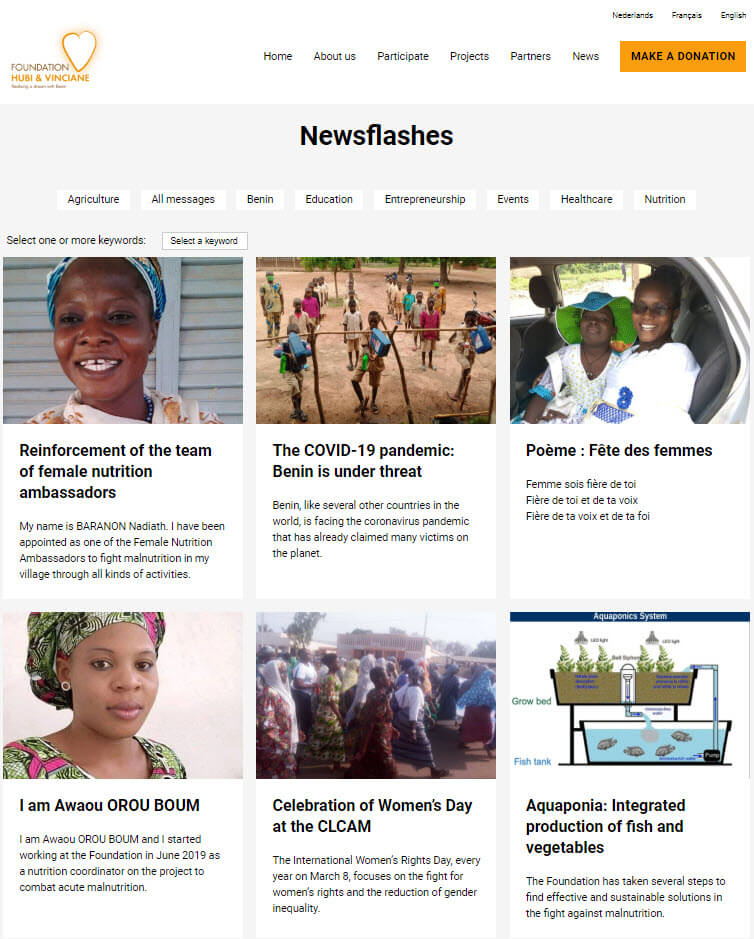Family Gardens
By creating smaller jardins de case or “family gardens” in the villages, we as a Foundation want to help residents grow fruits and vegetables to optimize their food’s nutritional value and quality.
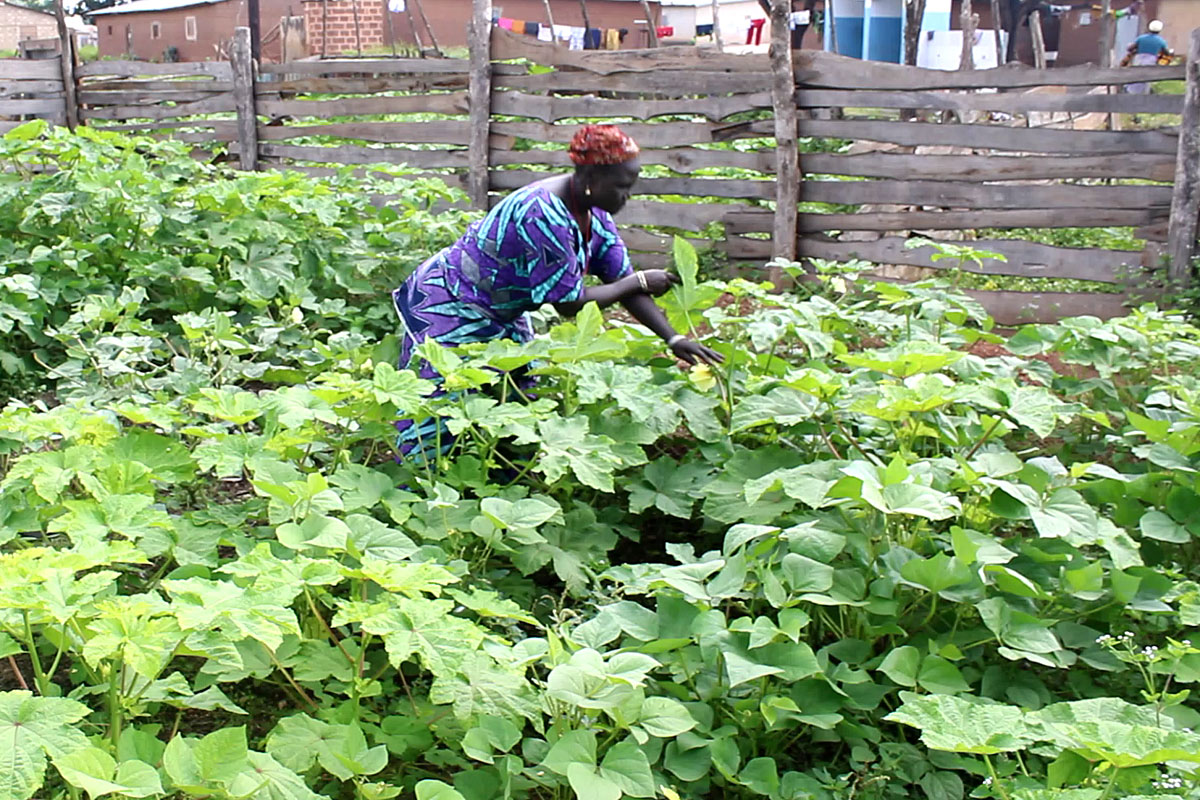
The project
From August 2019 – the start of the project – to December 2022, we have established 200 vegetable gardens. Those gardens are close to the houses and have an area of about 25 m² (5 x 5 meters).
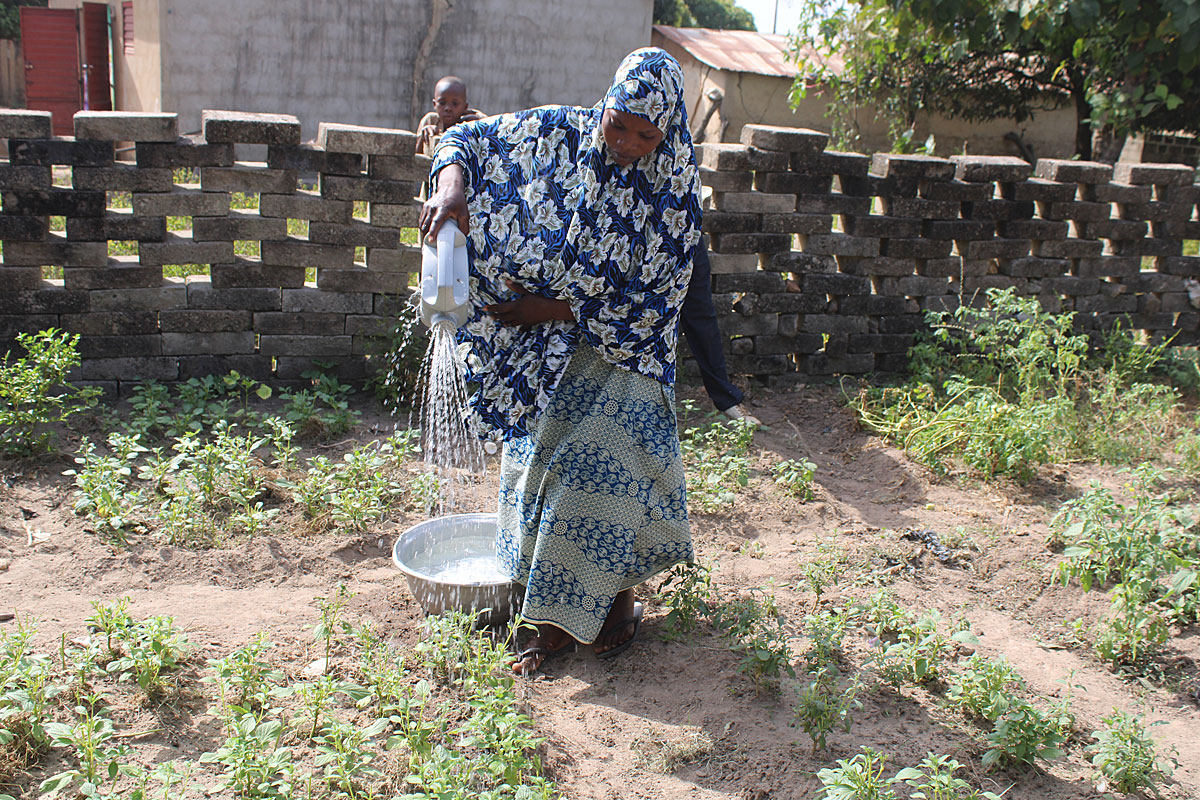
Objectives
With the jardins de case project, we want to address the region’s lack of fruits and vegetables, contributing to a balanced and healthy diet for residents.
Description
In each village we select some inhabitants with a small piece of land (about 25 m²) who are motivated to build and cultivate a garden. The number of gardens per village varies from two to thirteen, depending on interest and availability of land. Our agronomists give them seeds to get started and teach them how to grow local vegetables, and process and preserve them.
Our agronomists regularly go on site, follow them closely and advise them to achieve even better results.
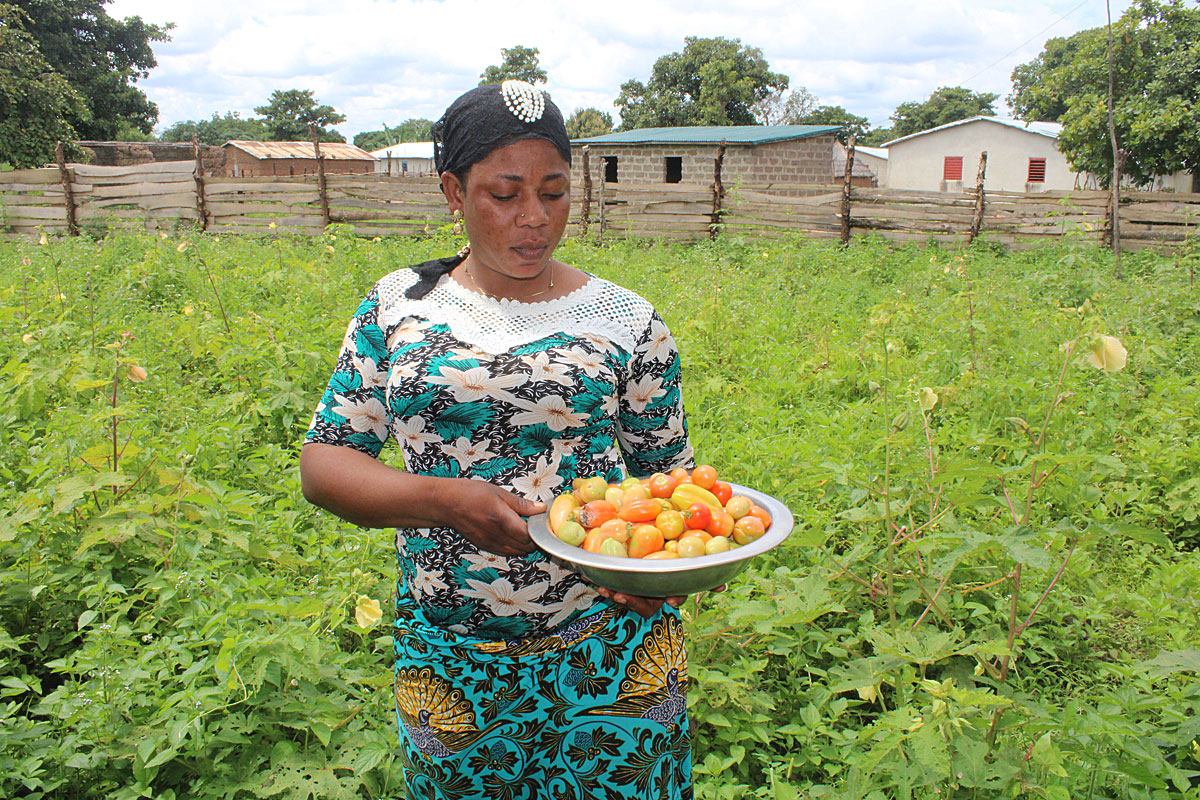
Results and developments
The construction of the jardins de case went smoothly and the owners were highly motivated. The gardens not only provided them with fresh fruits and vegetables, but they also had the opportunity to learn about processing, preserving, preparing and even selling the harvest.
In total, we were able to plant 200 gardens. Mainly vegetables are grown including tomato, bell pepper, okra, amaranth, and crin-crin. Banana plants were also produced in several gardens.
And the project was contagious: the first selected residents shared their experiences and seeds with others, contributing to social cohesion in their community.
Three years after the project began, 120 of the 200 jardins de case constructed are still in use. The others were abandoned due to other demanding activities such as harvesting cashew nuts and cassava and – above all – due to lack of water. Suppose they want to grow vegetables during the dry season. In that case, they must move their horticultural activities to bas-fonds or deeper soils.
If we want to expand the jardins de case project in Benin, there must be a better water supply in the villages so that the gardens can be worked even in the dry season.

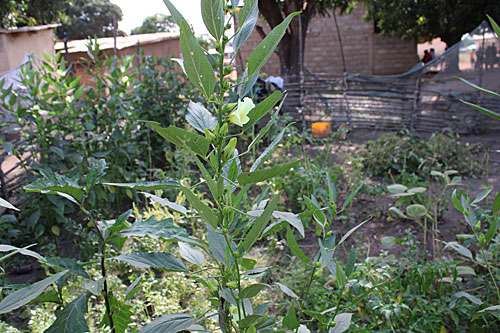

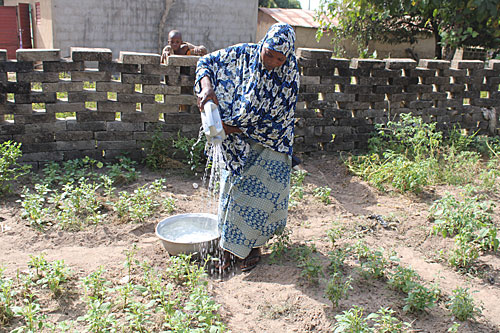
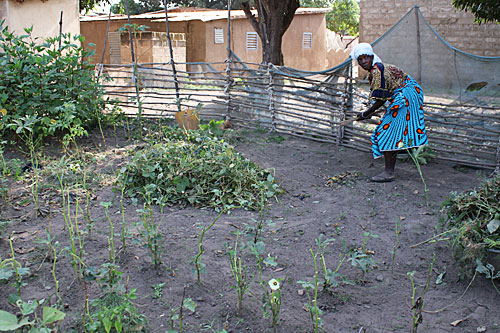
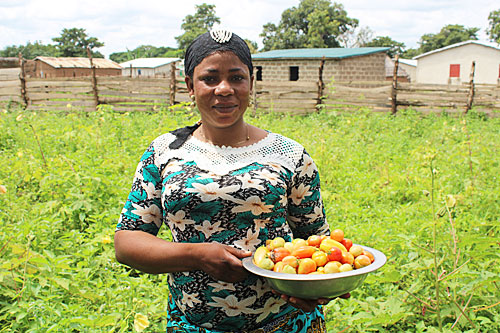
Justin Baguiri, proud owner of a small banana plantation
Justin Baguiri, a self-employed farmer, has already completed several training courses at the Foundation.

